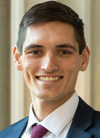L'IA pour la vie
Le programme de recherche l’IA pour la Vie exploite l’intelligence artificielle pour approfondir notre compréhension des organismes vivants, d’un état de bonne santé aux maladies complexes. Nos recherches intègrent des données variées, longitudinales et interventionnelles avec des connaissances d’experts, afin de développer des technologies pilotées par l’IA qui améliorent la compréhension biologique, facilitent le diagnostic, ouvrent de nouvelles voies thérapeutiques et soutiennent les patients.
En collaboration avec des experts biomédicaux et des professionnels de santé, nous concevons des modèles qui contribuent à révéler les mécanismes des maladies, qu’il s’agisse de cancers, de pathologies neurodégénératives, de troubles de la santé mentale ou de maladies rares. Grâce à des partenariats industriels, nous développons des modèles et des systèmes qui soutiennent la découverte de nouveaux traitements et optimisent les chaînes de développement de médicaments. Nous créons également des technologies d’assistance qui améliorent la qualité de vie, facilitent la communication et favorisent des solutions de santé plus inclusives. En permettant aux individus d’interagir avec leurs propres données de santé, nos recherches comblent les lacunes de connaissances sur les maladies et apportent des preuves solides en faveur de nouvelles approches thérapeutiques.
Domaines d’application
- Modélisation des systèmes biologiques
- Optimisation de la découverte de médicaments et des essais cliniques
- Santé prédictive et préventive
- Médecine personnalisée et inclusive
- Diagnostic & Traitement
- Informatique médicale & Systèmes de données de santé
- Autonomie & Engagement des patients
Domaines d'expertise
- Bio-informatique & Informatique de la santé
- Interaction homme–machine
- Imagerie & Vision par ordinateur
- Apprentissage automatique
- Sécurité & Protection de la vie privée
- Robotique & Systèmes autonomes
- Traitement du signal
- Traitement de la parole & du signal audio
Domaines d'expertise
Ce programme contribue aux ODD des Nations-Unies suivants
Personnes

ABBET, Philip
(Senior Research and Development Engineer)
- website

ALONSO DEL BARRIO, David
(Research and Development Engineer)

AMIRI, Mahdi
(Doctoral Researcher)

ANNAPUREDDY, Ravinithesh Reddy
(Doctoral Researcher)
- website

BAÑERAS-ROUX, Thibault (Augustin)
(Postdoctoral Researcher)
- website

BAROUDI, Séverin
(Research Intern)

BECKMANN, Pierre
(Doctoral Researcher)
- website

BEN MAHMOUD, Imen
(Research and Development Engineer)
- website

BILALOGLU, Cem
(Doctoral Researcher)
- website

BOLLENGIER, Alexis
(Research Intern)

BORNET, Olivier
(Head of Research and Development Team)
- website

BROS, Victor
(Doctoral Researcher)

BURDISSO, Sergio (Gastón)
(Research Associate)

CALINON, Sylvain
(Senior Research Scientist)
- website

CANÉVET, Olivier
(Senior Research and Development Engineer)
- website

CARRON, Daniel
(Senior Research and Development Engineer)
- website

CLIVAZ, Guillaume
(Senior Research and Development Engineer)
- website

DAYER, Yannick (Nicolas)
(Senior Research and Development Engineer)
- website

DELMAS, Maxime
(Postdoctoral Researcher)

DI MARIA, Alessandro
(Research Intern)

DROZ, William
(Senior Research and Development Engineer)
- website

EL HAJAL, Karl
(Doctoral Researcher)

ESMAEILY, Abolghasem
(Research Intern)

FREITAS, André
(Research Scientist)
- website

GAIST, Samuel
(Senior Research and Development Engineer)
- website

GATICA-PEREZ, Daniel
(Senior Research Scientist with Academic Title)
- website

GUPTA, Anshul
(Postdoctoral Researcher)
- website

GUPTE, Vivek (Samir)
(Doctoral Researcher)

HAIDAR, Nawal
(Doctoral Researcher)

HAULOTTE, Manon
(Research Intern)

HERMANN, Enno
(Postdoctoral Researcher)
- website

HERMUS, James (Russell)
(Postdoctoral Researcher)
- website

HOU, Mingchi
(Doctoral Researcher)

HOVSEPYAN, Sevada
(Research Associate)

JIMÉNEZ DEL TORO, Oscar (Alfonso)
(Research Associate)
- website

KALOGA, Yacouba
(Postdoctoral Researcher)

KAYAL, Salim
(Senior Research and Development Engineer)
- website

KHALIL, Driss
(Research and Development Engineer)
- website

KODRASI, Ina
(Research Scientist)
- website

KULKARNI, Ajinkya (Vijay)
(Postdoctoral Researcher)

KUMAR, Shashi
(Doctoral Researcher)
- website

LABRAK, Yanis
(Postdoctoral Researcher)

LI DONG, Virgílio
(Apprentice)

LI, Yiming
(Doctoral Researcher)
- website

LIU, Shiran
(Research Intern)

LÖW, Tobias
(Postdoctoral Researcher)
- website
LU, Zixu
(Research Intern)

LUO, Yongkang
(Academic Visitor)

MACEIRAS, Jérémy
(Senior Research and Development Engineer)
- website

MAGIMAI DOSS, Mathew
(Senior Research Scientist)
- website

MARCEL, Christine
(Chargée de l'éducation et de la médiation scientifique)
- website

MARIĆ, Ante
(Doctoral Researcher)
- website

MAYORAZ, André
(Research and Development Engineer)
- website

MICHEL, Samuel
(Research and Development Engineer)
- website

MOHR, Isabelle
(Doctoral Researcher)

MON GOMIS, Ariadna
(Research Intern)

MOTLICEK, Petr
(Senior Research Scientist)
- website

MUGNIER, Tom
(Research Intern)

MUKHERJEE, Anirban
(Doctoral Researcher)

NANCHEN, Alexandre
(Technology Transfer Manager)
- website

ODOBEZ, Jean-Marc
(Senior Research Scientist with Academic Title)
- website

ÖZBULAK, Gokhan
(Doctoral Researcher)
- website

PALLANCA, Olivier
(Postdoctoral Researcher)

PIQUER CRESPO, Miguel
(Apprentice)
PORTILLO FERNÁNDEZ, Lorenzo
(Research Intern)

PRADOS CARRASCO, Adrian
(Research Intern)
PULVIRENTI, Roberto
(Research Assistant)

RABELLO DOS ANJOS, André
(Research Scientist)
- website

RAFLA, Ramzy
(Research Intern)

RAJAPAKSHE, Shalutha
(Doctoral Researcher)
- website

SANCHEZ-CORTES, Dairazalia
(Postdoctoral Researcher)
- website

SCHONGER, Martin
(Doctoral Researcher)
- website

SENFT, Emmanuel
(Research Scientist)
- website

TAFASCA, Samy
(Postdoctoral Researcher)

TIMONINA-FARKAS, Anna
(Research Associate)

VAN RIJN, Tymo
(Research Intern)

VERZAT, Colombine
(Technology Transfer Manager)
- website

VILLAMIZAR, Michael (Alejandro)
(Research Associate)
- website

VILLATORO TELLO, Esaú
(Research Associate)
- website

VUILLECARD, Pierre
(Doctoral Researcher)

WANG, Hengfei
(Postdoctoral Researcher)

WATAWANA, Hasindri (Sankalpana)
(Doctoral Researcher)
- website

WYSOCKI, Oskar
(Postdoctoral Researcher)

XU, Lei
(Doctoral Researcher)

ZANGGER, Alicia
(Research and Development Engineer)
- website

ZHANG, Yan
(Doctoral Researcher)
- website
Publications choisies
Deep Learning Architectures for Estimating Breathing Signal and Respiratory Parameters from Speech Recordings. S. Nallanthighal, Z. Mostaani, A. Härma, H. Strik, and M. Magimai-Doss. Neural Networks, 2021.
This work is a result of a collaboration between Idiap and Philips Research Eindhoven on deep learning techniques for sensing breathing signal and breathing parameters from speech for healthcare. This work has potential implications for the development of novel speech-based methods for healthcare, such as breathing monitoring in telehealth and assessment for early recognition of abnormal breathing syndromes.
Spatially-Variant CNN-Based Point Spread Function Estimation for Blind Deconvolution and Depth Estimation in Optical Microscopy. A. Shajkofci and M. Liebling. IEEE Trans. on Image Processing, 29, 5848–5861, 2020.
Optical microscopy is a central tool for biomedical research and diagnostics, which calls for instruments performance to be continuously improved. We leverage a learning approach to locally determine image distortion parameters in the form of a parametric point spread function without requiring instrument- or object-specific calibration. This approach is robust to photon noise and is a key element for downstream applications, such as spatially variant deconvolution, depth localization, and flow estimation. This work is an outcome of the SNSF project Computational biomicroscopy: advanced image processing methods to quantify live biological systems (2018-2022).
Image-based Deep Learning Reveals the Responses of Human Motor Neurons to Stress and VCP-related ALS. Verzat, J. Harley, R. Patani, R. Luisier. Neuropathology and Applied Neurobiology, 48 (2): e12770, February 2022.
Amyotrophic lateral sclerosis (ALS) is a rapidly progressive and incurable neurodegenerative disease, for which the early cellular and molecular events remain poorly understood. Morphological attributes of cells and their substructures have been relatively understudied in ALS research. Transfer learning was used to leverage the power of imaging fluorescent data to enable unbiased, robust and efficient testing of biological hypotheses, and to resolve the extent of aberrant cellular morphological indices during earlier phases of ALS pathogenesis. This work, performed in collaboration with the Francis Crick Institute, is transformational to the information that can be gleaned from image analysis.
Projets choisis
AI4Autism, 2021-2025, SNSF, Sinergia project, Odobez
ChaSpeePro, 2021-2025, SNSF Sinergia, Kodrasi
NeuroCIRT, 2022-2026, SNSF, Luisier
Liste de tous les projets
AI4Autism, 2021-2025, SNSF, Sinergia project, Odobez
Design automatic children behavior and interaction analysis digital tools for the screening and automated profiling of autism phenotype
ePartner4ALL, 2021-2024, Eureka NL-CH call, Odobez
A (personalized and) blended care solution with virtual buddy for child health
BipedAI, 2023-2024, Innosuisse, Odobez
Develop perception tools for helping blind people navigate outdoors
WeNet, 2019-2023, H2020, Gatica-Perez
Smartphone sensing to support well-being of university students
AI4Media, 2020-2024, H2020, Gatica-Perez
AI-based analysis of European health news
SECure, 2022-2024, The Ark foundation, Anjos, Freitas
Safe & Explainable Clinical AI for Orthopaedic Surgical Assessment with Med4CAST
CAD4IED, 2022-2023, Idiap & Luzerner Kantonsspital, Anjos
Computer assisted detection and grading of inflammatory eye diseases via fluorescein angiograms
ABRoad, 2022-2024, The Ark, Freitas
AI-augmented scientific discovery of new antibiotics
LunarBase, 2023-2024, The Ark, Freitas
LunarBase: industrial-scale inference
NCCR Evolving Language, 2020-2024, SNSF, Garner
Low-level mechanisms of language evolution
NCCR Evolving Language, 2020-2024, SNSF, Magimai Doss
Discovering the parallel between human and animal communications, as part of biological discovery
TIPS, 2019-2023, SNSF, Magimai Doss
Exploring relation between speech activity, breathing activity and cardiac activity
EMIL, 2021-2025, Bridge Discovery, Magimai Doss
Prediction and monitoring of Parkinson’s Disease symptoms
SWITCH, 2021-2024, SNSF, Calinon
Learning by switching roles in physical human-robot collaboration for physical assistance for sitting/standing
INTELLIMAN, 2022-2026, Horizon Europe, Calinon
AI-powered manipulation system for advanced robotic service, manufacturing and prosthetics for prosthetic hands
Melas, 2023-2025, Idiap-NIBR, Luisier
Towards the development of predictive biomarkers for patient stratification and immunotherapy response in cancer
NeuroCIRT, 2022-2026, SNSF, Luisier
Investigating the role of cytoplasmic intronic sequences in ALS pathogenesis
MelAS, 2022-2023, Novartis Foundation for Medical-Biological Research, Luisier
Alternative splicing and polyadenylation from single-cell RNA sequencing towards tumor subpopulation identification in melanoma
ChaSpeePro, 2021-2025, SNSF Sinergia, Kodrasi
Characterizing speech disorders and processes







